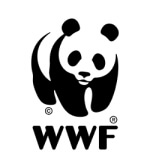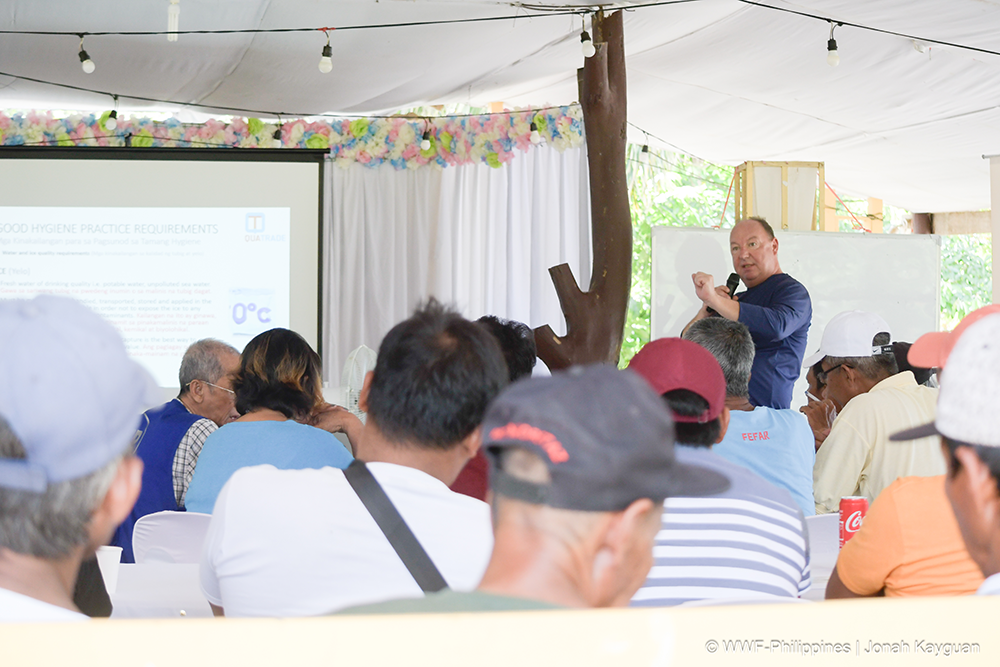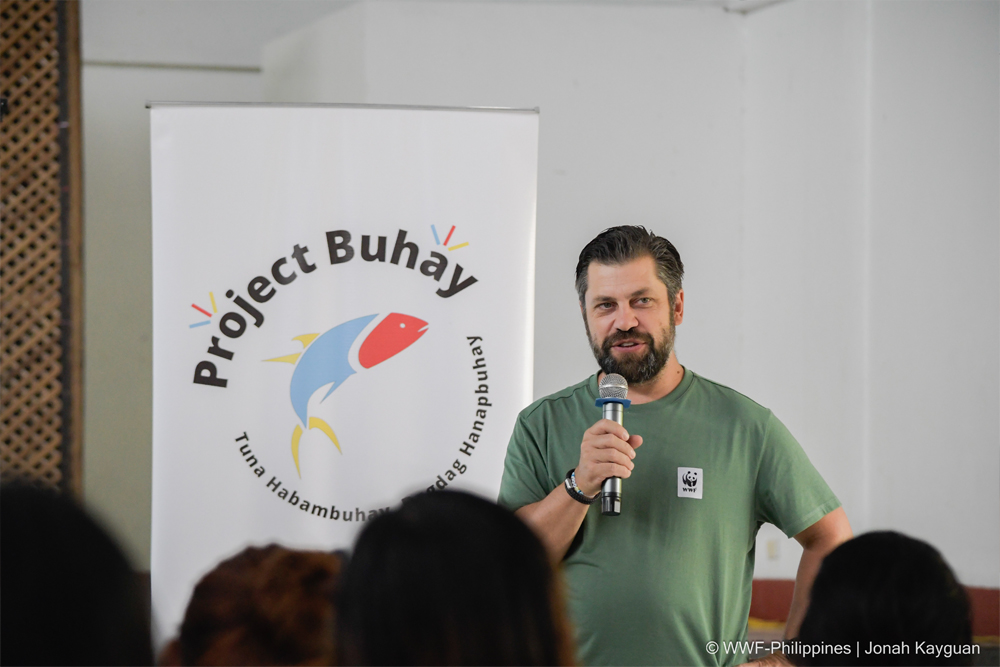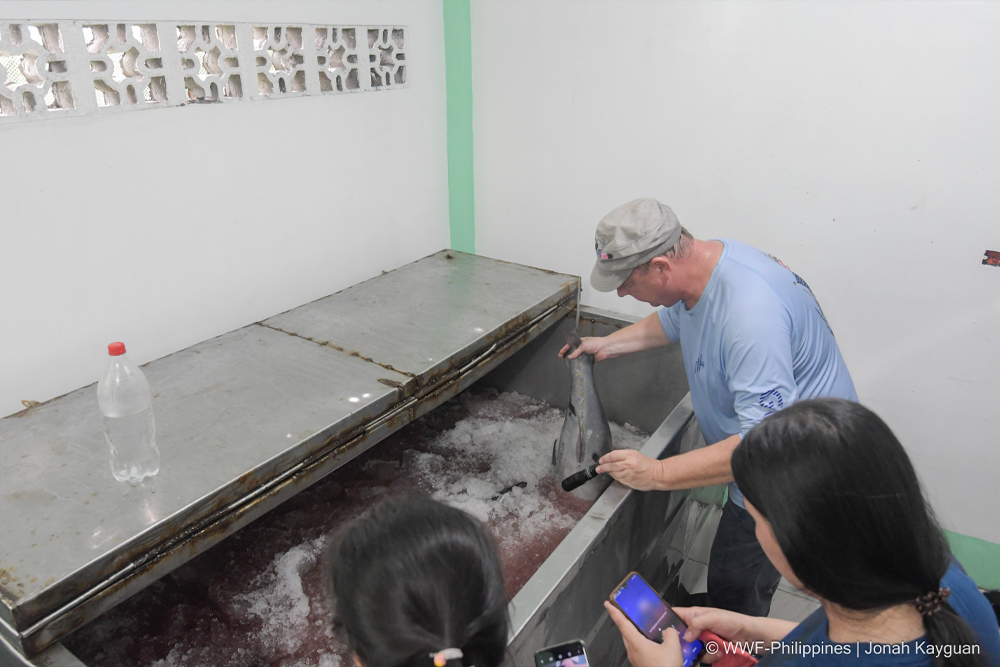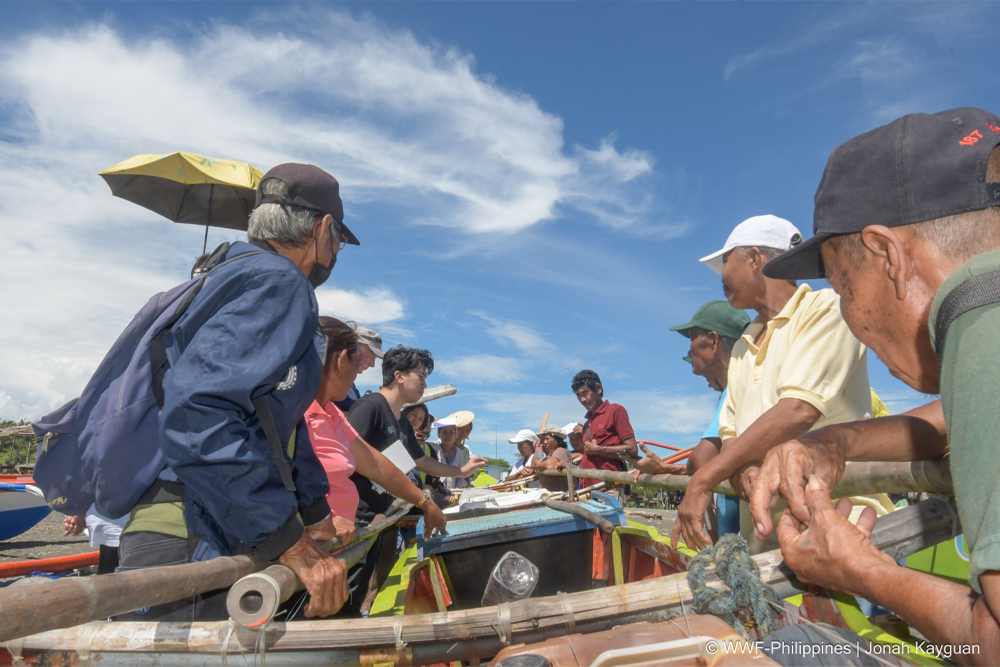“Kapag sinabing sustainable sourcing, kasama yung tamang pag-handle ng huling tuna. Kapag mas maayos, mas mataas and competitive advantage natin, hindi lang sa local market, pero pati sa international (When we say sustainable sourcing, this includes the proper handling of our caught tuna. The better we handle our catch, the better our competitive advantage will be, not just in the local market, but also internationally),” shares David David, WWF-Philippines’ Sustainable Partnership 2 Site Manager for Mindoro Strait.
WWF-Philippines, through the European Union (EU) funded Project Buhay: Tuna Habambuhay, Dagdag Hanapbuhay, conducted food safety training sessions in the municipalities of Mamburao, Rizal, and Sablayan in Occidental Mindoro and Parañaque City, Metro Manila from August 18-29, 2023. These sessions were attended by stakeholders along the tuna supply chain – fishers, buying stations, and exporters. The training was led by Klaus Palmetzhofer, a third-party Food Safety Consultant who has extensive experience in food technology, supply chain management, quality assurance and sustainability standards, and is the owner of QuaTrade e.U., an Austrian company with food safety audit services.
These efforts are in line with the project’s goal of reducing post-harvest losses – the decline in the value or volume of tuna due to poor quality and bad handling, after the fish has already been caught. Axel Hein, WWF-Austria’s Corporate Relations Manager for Seafood, shares that “this program is about livelihoods, food security, and the future generations – to have tuna for a hundred years and beyond if we manage it well.” Being equipped with internationally recognized food safety protocols would help maintain the quality of caught tuna. This would maximize the value of existing tuna being caught, and improve the income of stakeholders across the tuna supply chain.
“As part of our support to more than a decade of work of sustainable tuna in Occidental Mindoro, we wanted all actors in the tuna supply chain to be equipped with the knowledge to ensure the quality and safety of their tuna,” says Melody Melo-Rijk, WWF-Philippines’ Project Buhay Project Manager. “There should be seven (7) main characteristics of food: accessible, available, affordable, nutritious, palatable, sustainably sourced and safe. If food is not safe, even if it has the other six (6) characteristics, then it will be thrown away. It cannot be consumed. That is how important food safety is.”
The sessions covered food safety practices and guidelines at par with international standards. These are especially important for tuna caught in Mindoro Strait since some of these are MSC certified and are exported to EU markets. Attendees were asked about their current practices, given tips on how to improve them, and clarified any existing misconceptions related to food safety.
Hands-on site visits were also conducted in fishing communities, buying stations, landing centers, and processing plants. Facilities and equipment were assessed, and live recommendations and observations were given to help further improve quality assurance and quality control of tuna.
Following these activities, WWF-Philippines’ Project Buhay will provide visited sites with a list of recommendations as produced by Mr. Palmetzhofer. The team will also help monitor compliance with the discussed food safety protocols in the Sablayan Community Fish Landing Center (CFLC), and conduct more sessions with tuna fishers and women.
